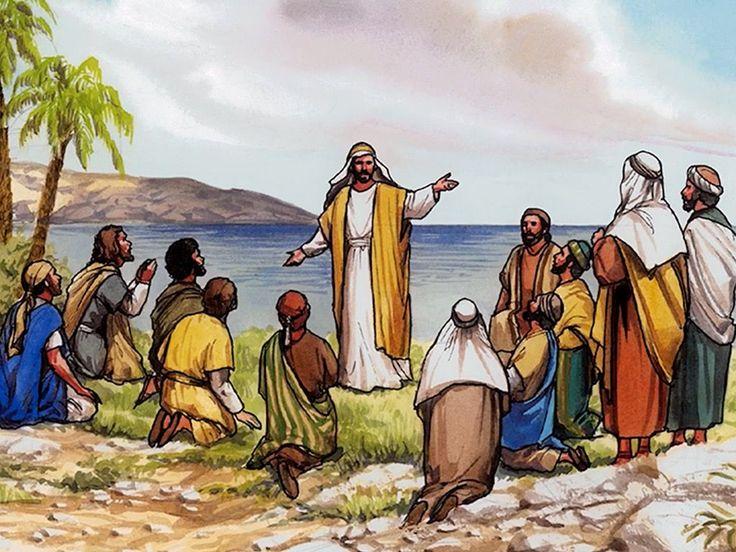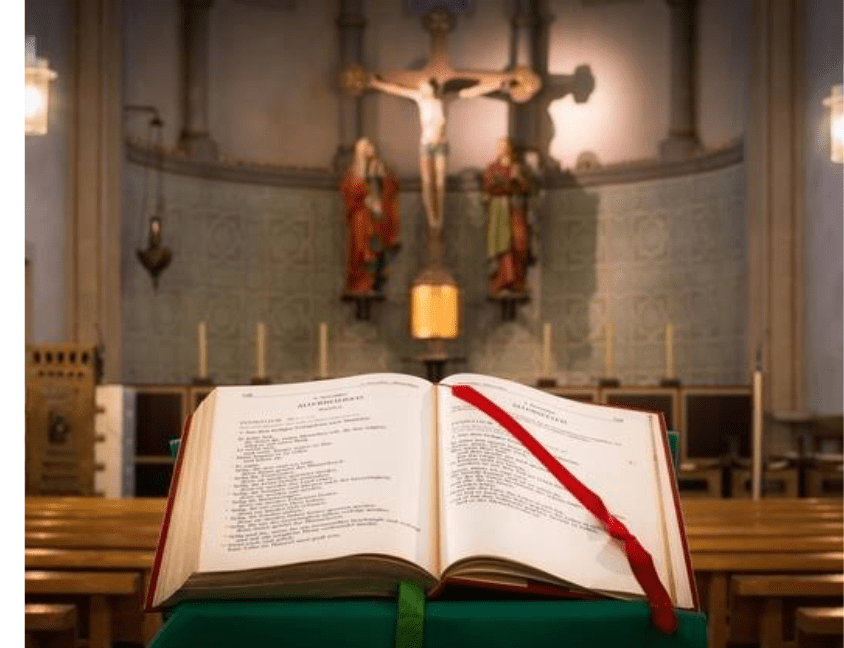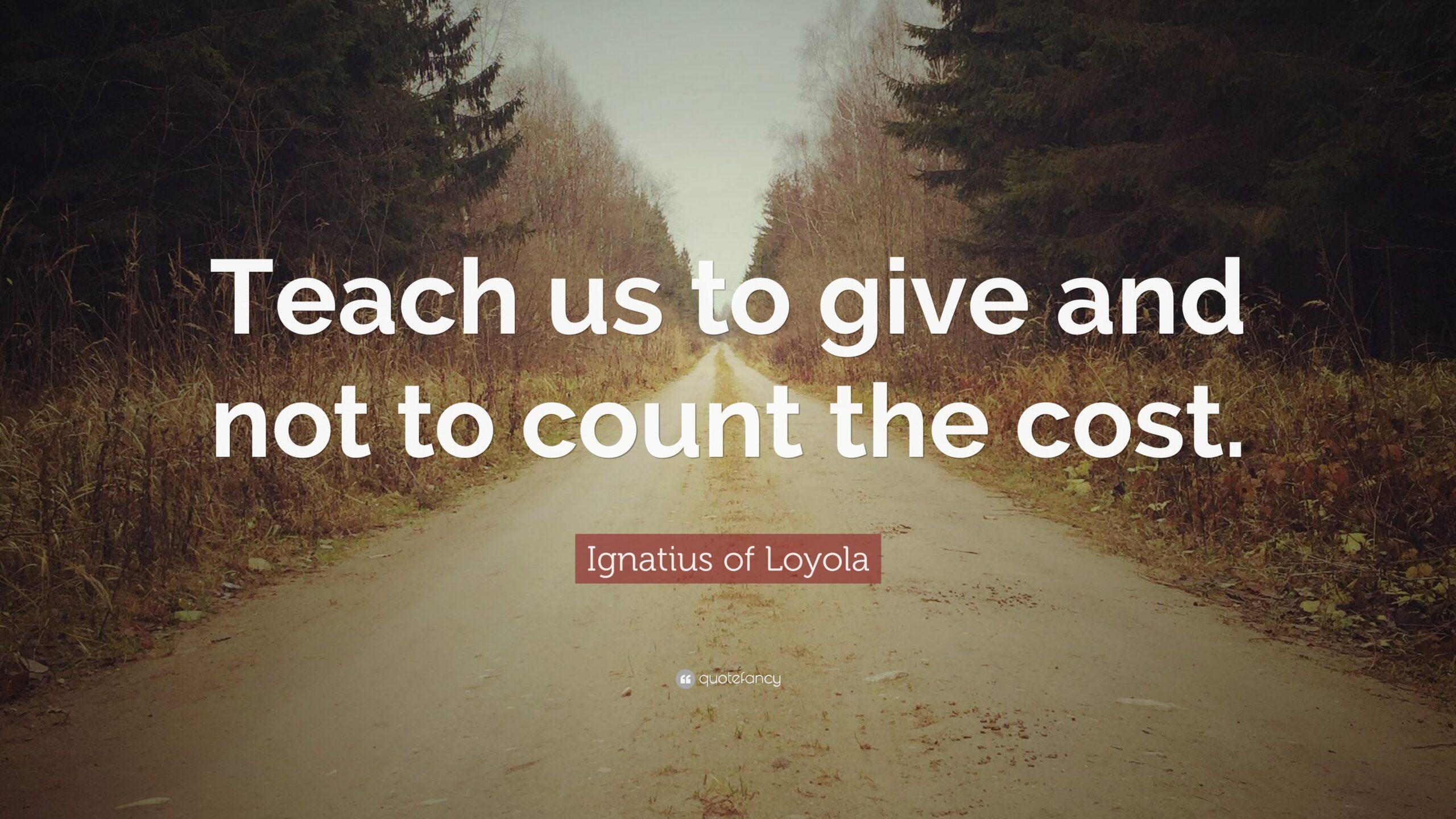
Homily For The 11th Sunday In The Ordinary Time Year A. June 18, 2023
“Teach us, good Lord, to serve you as you deserve; to give, and not to count the cost, to fight, and not to heed the wounds, to toil, and not to seek for rest, to labor, and not to ask for reward, except that of knowing that we are doing your will.” St. Ignatius Loyola

Sunday Readings
My Dearest Friend’s In Christ
Happy Father’s Day to all our dearly cherished Fathers. Your presence and support in every home in this country and your collective support in building up families, the church, and our country will never go unrewarded. We pray for you all today and impart God’s benediction upon you all.
Welcome to the ordinary time of the year. The main theme of today’s readings is that we are commissioned or sent, to transform others with the “Good News” of God’s love, mercy, forgiveness, and salvation through Jesus His Son.
God Calls Us To Be A Holy People
The first reading gives Israel the good news that the God of Mount Sinai loves and cares for his people. God showed His continuing care for Israel by liberating the people from slavery in Egypt and by offering them a relationship in which they would be God’s “special possession,” “a kingdom of priests, a holy nation.” All ancient religions assumed that the gods were distant from and indifferent to humans. The best people could hope for was that a few members, of their priestly class, could deal with the gods on their behalf. In today’s first reading, God overturns that class distinction. In the instruction given to Moses, God wants all the members of His chosen people to be a kingdom of holy priests. God expects a whole holy nation to join in worship, not just a few holy members to perform sacred duties for the rest. God says that all His people are special, set apart, and holy and that they should pay attention to their exalted position. Holiness is a universal call, it is in being a holy nation that our lives will be pleasing to God.
God’s Love is expressed in His dying for us
Paul, in today’s second reading, reflects on how Jesus in his life, death, and resurrection made manifest God’s love and care for mankind. According to Paul, the greatest proof of God’s love and care for us was Jesus’ willingness to die on behalf of sinful mankind and to make possible a new and better relationship with God. Paul eloquently reminds the gathered community of Romans that God has gone beyond all limits in loving them. Paul’s point is that we were quite unworthy of the gift God gave us in Christ. Notice all the expressions of this unworthiness: “helpless, ungodly, still sinners, enemies.” It’s the contrast between our unworthiness and God’s gracious generosity that is so remarkable. Paul argues that Jesus served and taught and healed and died for those who were sinners because they were essentially God’s people, God’s special ones, the holy nation, the ones set apart. As Jesus walked the streets and taught the crowds, he saw in each of them a sacred and holy child of God.
God Reached out to us in compassion
Today’s Gospel message is rather simple and to the point. God has compassion for us and has reached out to nurture us, free us, and heal us through Jesus. We are lovable and good because God loves us and has chosen us as Jesus chose his apostles. Since Jesus loves the leaderless people, he chooses and sends the twelve apostles to awaken the people. He reminds the apostles that the harvest is very plentiful but the laborers are few. He instructs them to pray that the Lord will send laborers into His harvest. Are we willing to serve as laborers in the Lord’s vineyard which is the church and the world? Do we have compassion for the people we serve or simply exploit them?
Without cost you have received; without cost you are to give.
One remarkable instruction that Jesus gave to His disciples and us necessary in discharging this mission is: “Freely you have received;” and “Freely give.” I was embarrassed the day a lady in the USA asked me if I could come to bless the grave of her son on the second anniversary of his death. I agreed to come but she asked me how much I will charge her to come. I declined any bargain because I did not pay to be ordained a priest, it was a gift of God and therefore my services should be delivered free of charge. Her attitude like many, reflects a lack of understanding of Christ’s instruction when He entrusted this mission to us. In the ancient Jewish religion, a Rabbi was bound by law to give his teaching freely and for nothing. The Rabbi was forbidden to take money for teaching the Law which Moses had received without cost from God. Jesus’ instructions mean that the man of God must show by his attitude to material things that his first interest is God. But Jesus adds that the workman deserves his sustenance. Although a Jewish rabbi was not expected to accept payment, it was considered at once a privilege and an obligation to support a Rabbi, if he were truly a man of God. What Jesus means is that a man of God must never be overly concerned with material things. At the same time, the people of God must never fail in their duty to see that the man of God receives reasonable support. Missionaries are to depend on the local hospitality of “worthy” (10:11) people, i.e., those in favor with God, and to “greet” (10:12) them with the peace of God.
The mission entrusted to us requires sacrifices and volunteering. Every Christian be it clergy, religious, or lay person should be disposed at all times to supply for the benefit of others without prioritizing financial benefits. Let us continue to heal others, teach others, and spread God’s compassion and love to the whole world. If we understand compassion as “cum and passio” meaning to suffer with others, then we should be ready to suffer with others to bring God’s blessings into their lives.
I keep you and your family always in my prayers. ©Clem C. Aladi (2024)



